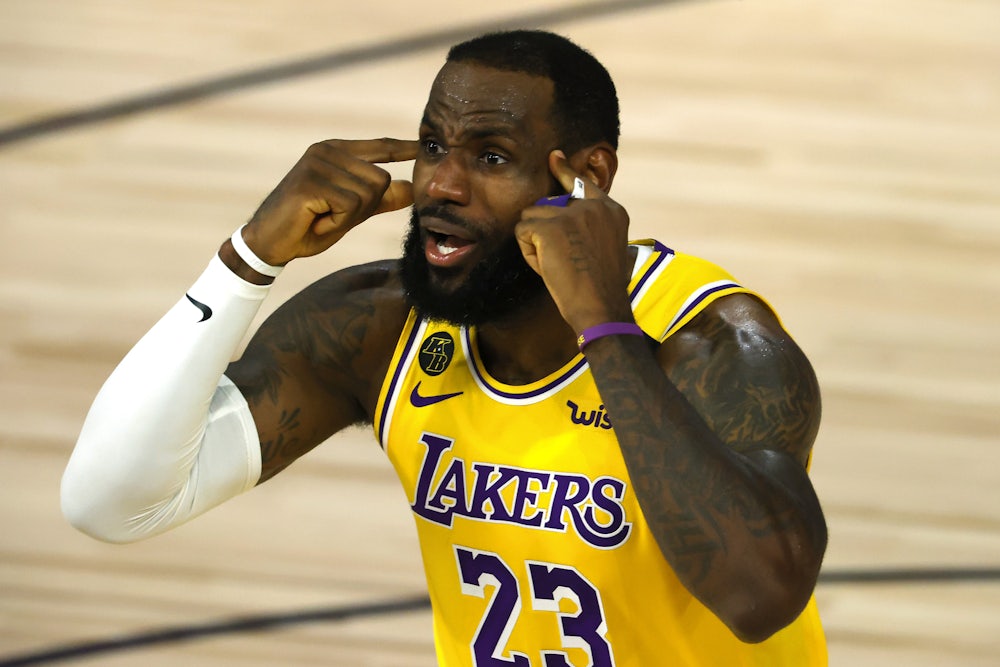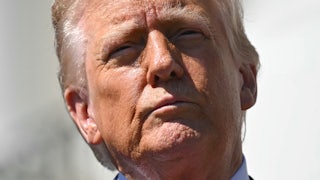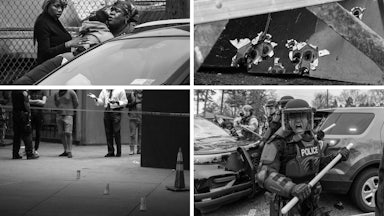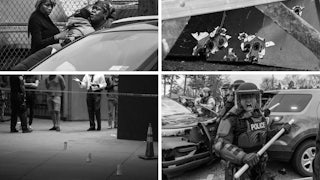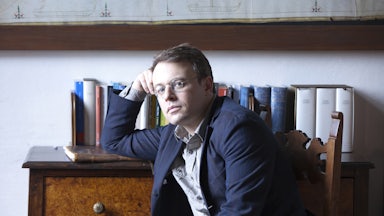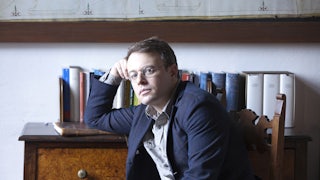Asked whether he’d gotten a Covid-19 vaccine, Fox News host Tucker Carlson recently dodged with a saucy nonanswer. “When was the last time you had sex with your wife and in what position?” he replied to New York Times media columnist Ben Smith. “We can trade intimate details.”
In May, Los Angeles Lakers star LeBron James told reporters inquiring about his vaccination status that “anything of that nature is all family talk.” That same month, St. Louis Blues hockey forward David Perron grudgingly shared at a press conference he had been vaccinated. “I don’t know why it’s a big deal,” he said. “I don’t want to talk about that anymore.”
Athletes, influencers, and other public figures have discovered a rhetorical escape hatch from uncomfortable conversations about the Covid-19 vaccine: It’s none of your business. But vaccines for infectious diseases are, by nature, everyone’s business. Getting the jab not only protects the recipient from getting seriously sick or dying from Covid-19; it also reduces a person’s risk of carrying and transmitting the virus to anyone around them, too.
“When you start hemming and hawing about personal choice, you say, ‘I don’t really care about community,’” Arthur Caplan, a bioethicist at New York University, told me. “It really lacks any moral courage or responsibility. It’s a little bit cowardly.”
Of course, celebrities, like everyone else, have the freedom to choose when to keep quiet and when to speak up. But unlike the rest of us, they benefit from outsize social power and privilege and have the power to shape public opinion and shine light on underrecognized issues. Early in the pandemic, for example, Tom Hanks helped convince many of us about our susceptibility to the then-emerging virus by announcing his diagnosis; later, Dolly Parton drew attention to Covid-19 vaccines with a $1 million donation for research.
“They hold some sort of credibility to us, even if they’re not a medical expert,” Richard Carpiano, a professor of public policy and sociology at the University of California, Riverside, told me. “It’s sort of a misplaced trust, but it’s a reality: We look to celebrities for these types of decisions.”
Pre-pandemic examples abound of celebrities sharing stories of their own medical issues (many of them deeply intimate) for the benefit of public awareness and action. When former first lady Betty Ford opened up about her alcoholism, substance use disorders were still highly stigmatized. When basketball legend Magic Johnson went public with his HIV status in the early 1990s, it showed the public that the disease didn’t only affect gay men. More recently, a cadre of famous women have helped destigmatize a number of reproductive health issues: Model Brooke Shield shared her struggles with postpartum depression, Michelle Obama wrote about her miscarriage and fertility treatments, and Angelina Jolie revealed she underwent a prophylactic double mastectomy after learning she carried a genetic mutation that put her at high risk for breast and ovarian cancer. In 2000, Katie Couric’s televised colonoscopy led to a boost in the procedure later dubbed “the Katie Couric Effect.” Elvis is credited with successfully encouraging young people to get the polio vaccine when he was photographed getting the shot backstage at The Ed Sullivan Show, 65 years ago.*
“There is precedent for this sort of thing,” Hal Hershfield, a psychologist and a researcher of behavioral decision-making at UCLA, told me. “There’s no obligation. But it can be influential.”
When public figures decide to opt out of using that influence to protect the health and safety of society during a global crisis, we have the right to call it what it is: antisocial. “Part of the unwritten agreement is their lives are open to the public in some ways,” Hershfield said. “When a celebrity prefers to not speak up, it sends a message. The silence is saying something.”
For one, it suggests the equivocator is either vaccinated and wants to hide it or is unvaccinated and doesn’t want to own up. In either scenario, dodging the question clearly signals that vaccination status is somehow worthy of secrecy—and that talking openly about it is somehow taboo.
But talking about the vaccine is a vital public health activity. There are no forced vaccinations or legal requirements that people report their vaccination status (claims that the Health Insurance Portability and Accountability Act prevents private companies, schools, or airlines from asking are false). Our vaccination drive is voluntary. It therefore hinges on people electing to get the shot. So far, 150 million people have done so—about 45 percent of the total population, and 56 percent of adults, are fully vaccinated.
Having serviced those most eager and able to get the shot, the question is now how to reach the vaccine-hesitant—who are vulnerable to the new, more contagious Delta variant. The answer is multifaceted, Jennifer Reich, a University of Colorado sociologist and expert in vaccine hesitancy, told me. “Just because someone isn’t sure about vaccines doesn’t mean they’re conspiracy theorists,” she said.
Unvaccinated adults in the United States are not a monolithic bloc. Hard-core, conspiracy-fueled anti-vaxxers are only one segment of this population. For some, vaccine resistance is related to a general mistrust of the medical system. Low-income workers might hesitate to get the vaccine out of fear that the shot’s knockout side effects will cost them sick days they can’t afford to take. Some people are concerned about the vaccine’s impact on fertility, while others are waiting to have access to it from a place they trust or can easily travel to, like their doctor’s office or workplace. Many of those who wanted to “wait and see” earlier in the rollout are now coming around, recent polling indicates.
The next phase of our vaccine rollout depends on understanding and addressing the varied reasons people might avoid vaccines. However, Caplan said, “we can’t get anywhere if people won’t tell us.” And when public figures hedge about their own vaccination status, it gives permission for everyone else to retreat and helps stigmatize the subject at a crucial time when open, nuanced conversations are a critical public health tool.
“The country’s divided. Take a stand, be honest, explain your point of view,” Caplan said. Doing that on the largest of stages offers a model to local public figures and micro-influencers—such as faith leaders and family physicians—for how they might broach these difficult conversations. “When you start hemming and hawing, then you do turn it into a stigma,” he said.
With the threat and danger of Covid-19 still with us, celebrities still have the opportunity to use their prominence to encourage trusting fans to opt for life-saving, altruistic choices. “We’re still not out of this yet,” Carpiano said. “You have a platform, and the ability to influence. If you’re not going to embrace it, if you’re going to equivocate in a position of power,” he added, “it’s going to contribute to more deaths.”
We want to think of health as a personal project: that the workouts I sweat through, the foods I eat or avoid, the drugs I do or don’t imbibe, will protect me from bodily ruin. But that’s not how it works. “Most disease is beyond people’s control,” Reich told me. “It’s environmental, it’s genetic, it’s bad luck.”
It’s also communal—preventing the spread of disease requires sometimes disclosing our health status to others. I am free to refuse to answer when a sexual partner asks me if I’ve tested positive for an STD, but my withholding limits their ability to make informed decisions about their own health.
“However we choose to think of the social body, we are each other’s environment,” writes Eula Biss in her 2014 book, On Immunity. “Immunity is a shared space—a garden we tend together.” In that shared garden, for celebrities and for the rest of us, vaccination is a public event, both literally and metaphorically.
“We are reliant now on people being honest about their vaccination status,” Craig Klugman, a professor of bioethics at DePaul University, told me. “The equivocation undermines that entire system—that we are accountable to one another, that we’re all breathing the same air.”
* A previous version of this article misstated that Elvis got his shot on live TV.
